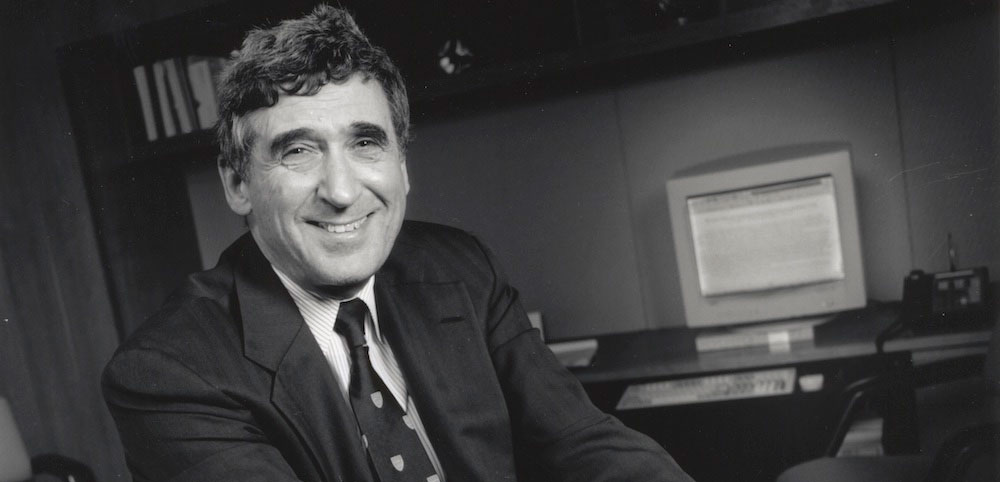

Photo: Jim Harrison
Ralph Gomory
Technology, the Economy & Employment
4th Heinz Awards - 1998
Dr. Ralph E. Gomory received the 4th Heinz Award in Technology, the Economy and Employment for the rare combination of his personal contributions to the advancement of science and his reasoned analysis about the value of new technology to the economy and society.
Trained as a mathematician, Dr. Gomory first became a researcher and then an executive at IBM. Through his own research he created new areas of applied mathematics and later, both participated in and oversaw the development of a broad range of critical new technologies. Many of the breakthroughs with which he was involved were fundamental to the advancement of the information revolution. Always more than just a researcher or a manager, he was known for his insatiable curiosity about the role of technological innovation in fostering a dynamic economy.
After his immense success in the corporate world, Dr. Gomory decided to move into the philanthropic world as head of a major science education foundation. There he has demonstrated a profound commitment to broadening our understanding of the economic importance of science and research and to enhancing the excellence of scientific education.
Ralph Gomory received his Ph.D. in mathematics from Princeton University and, while serving in the U.S. Navy, shifted his focus to applied mathematics in operations research. Among his mathematical achievements were founding contributions to the field of integer programming, an active area of research to this day. In 1959, he joined the IBM Research Division, launching a career that helped to establish that company as one of the major research institutions in the world. Just 11 years after coming to IBM, he was named Director of Research and immediately began leading the company in the development of some of the world’s most exciting new products and technologies. He continued to play a leadership role for 20 years after being promoted to the position of Senior Vice President of Science and Technology.
Besides exhibiting an uncanny talent for hiring and developing the very best and brightest minds - IBM researchers were awarded three Nobel Prizes in physics on his watch - he was a committed scientist. He and his staff are credited with many fundamental contributions to advanced technology in such areas as the single-transistor memory cell, high-density storage devices, silicon processing methods, relational database theory, and the development of the personal computer.
In 1989, Dr. Gomory became President of the Alfred P. Sloan Foundation, a foundation with a traditional interest in science, science education and technology. There, he has contributed to programs in new areas involving economic growth and industrial competitiveness. Dr. Gomory has not shied away from embracing controversy or tackling tough issues, either in his role as foundation president or in his personal economic research. At a time when conventional wisdom dictated that embattled American companies could survive only by switching industries, moving production off-shore, or seeking protection under restrictive trade laws, Dr. Gomory exemplified a different view. He played a critical role in substantiating the value of revitalizing industrial production by increasing investment, reorganizing production, applying new technologies, and learning from the competition.
Dr. Gomory is one of the few individuals ever elected to the councils of both the National Academy of Sciences and the National Academy of Engineering. He has helped to forge a growing collaboration between engineering and social science disciplines at universities throughout America. His vision is to create centers of excellence at schools across the country, each specializing in a different technology or industry. Dr. Gomory offers an important perspective as one of the nation’s clearest and most persuasive thinkers on the economic significance of technology and its development.
Note: This profile was written at the time of the awards’ presentation.
